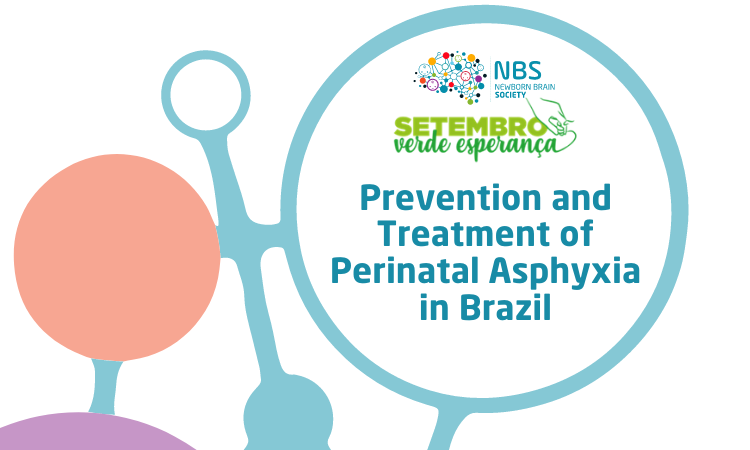
Brazil faced a significant reduction in the incidence of birth asphyxia between 1990-2015, a period corresponding to the millennium goals, due to advances in the coverage of prenatal care. However, many challenges remain to be overcome. It is estimated that approximately 20 thousand infants per year suffer from significant hypoxic-ischemic encephalopathy (HIE) in the country.
The work of the Neonatal Resuscitation Program of Brazilian Society of Pediatrics, which established in 1994 and trained thousands of health professionals throughout the country, stands out. In 2018, the Brazilian Society of Pediatrics launched the Nascimento Seguro (or “Safe Birth”) campaign, which aimed to raise awareness through information directed to multidisciplinary teams, families and pregnant women on the importance of the quality and integration of prenatal care, childbirth, birth and neonatal period, and the presence of a pediatrician in the newborn care team as early as during pregnancy, during delivery and the neonatal period.
Neuroprotection strategies such as therapeutic hypothermia and brain monitoring have been implemented in Brazil with significant heterogeneity at several levels of management. It is estimated that less than 5% of infants with HIE in the country will receive the treatment accordingly to the validated international protocols (including adequate neurological exam, proper temperature control, brain monitoring, seizures diagnosis and treatment, access to brain imaging and adequate follow up). A National Task Force to provide proper education and training across Brazil with referral of eligible neonates to centers capable of providing the level of care required for this therapy would be an important step forward.
In order to further enhance the attention to the prevention and treatment of perinatal asphyxia, national entities have joined together to launch the Setembro Verde Esperança – National Awareness Campaign on Birth Asphyxia – to endorse the importance awareness of risks, prevention and treatment of perinatal asphyxia and HIE.
The movement was initiated by the Protecting Brains Saving Futures Institute, a non-profit organization led by a group of healthcare professionals concerned with the high number of babies at risk of living with neurological impairment due to brain injury in the neonatal period. They collaborate on this campaign closely with fundamental partnership of the Brazilian Society of Pediatrics.
Furthermore, this project received support from Ministry of Health in Brazil and also from over 70 different national and international entities ranging from medical societies, universities, hospitals and large companies including Microsoft. As a gesture of governmental support, the national congress and senate were illuminated in green in allusion to the campaign.
The movement’s goal is to launch a series of actions that bring this topic to the heart of discussion of the whole society and draw the attention of the public and private sectors to the need to reduce the impact of perinatal asphyxia and HIE in Brazil.
The strength of this campaign comes from the joining forces to implement strategies to reduce relevant and preventable risk factors of deaths and neurological impairment related to the perinatal period to achieve attainable results in the country’s socioeconomic condition.
The Newborn Brain Society endorses Setembro Verde Esperanç which represents a role model for fulfilling its mission of advancing newborn brain care through international multidisciplinary collaboration, education, and innovation.

